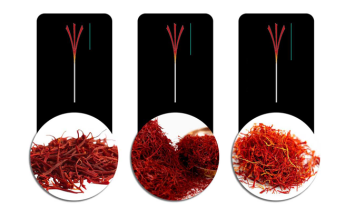Riyadh: The food and beverage (F&B) sector in the Gulf Cooperation Council (GCC) states is expected to continue to grow at a healthy 7.1 per cent annually, reaching $196 billion by 2021, from the current $130 billion, according to MENA Research Partners, a leading research company in the region.
Saudi Arabia alone accounts for more than half of the market share, followed by the UAE with 31 per cent. Kuwait, which is the third largest F&B market in the region, is set to witness the fastest expansion at 9.6 per cent per year.
The food and beverage products’ segment, characterised by a large presence of international brands, either manufactured regionally through local factories or imported through distributors, accounts for the lion’s share of the market at 70 per cent. However, the food service segment, led by international chains represented by regional franchise partners, is set to outperform the sector’s growth, expanding by 8.4 per cent annually until 2021.
“This surge is driven by the growth in disposable income, a shift from dining-in to dining-out and a trading up in the dining-out habits and preferences. Also, catering concepts fuelled by home and office delivery and online food ordering are gaining popularity,” Anthony Hobeika, chief executive officer at Middle East and North Africa (MENA) Research Partners, said ahead of Gulf Food 2018.
“Moreover, higher health awareness,as a result of the prevalence of chronic diseases in the GCC, has led to a growing demand for healthy foods and allergen-free products,” he added.
As disposable incomes rise in emerging markets, consumers are becoming more sophisticated, and their attitudes regarding food are changing. The consumption mix is shifting away from staple products toward value-added, convenient, and healthier alternatives. In addition, government policy initiatives, such as Saudi Arabia’s 50 per cent tax on carbonated soft drinks and 100 per cent tax on energy drinks, are driving consumers towards more attractive healthier options.
Among rising trends, the GCC’s booming population and growing tourism influx will also continue to influence the exponential rise of the region’s food and beverage industry in the coming years.
Hobeika further said: “The GCC macro outlook remains accommodating to the food and beverage industry, as diversification away from oil remains governments’ primary target for the next decade. Many countries and cities in the region are aiming for economic diversification through development plans and national visions.”
“Dubai, for example, has implemented an ambitious Industrial Strategy 2030, with initiatives not only in the food and beverage sector but in aerospace, maritime, pharmaceuticals and medical equipment, aluminum and fabricated metals, and machinery and equipment. In addition, Saudi Arabia also has a vision for diversification with its National Transformation Plan, also to be implemented through 2030,” he added.
Source: timesof KSA.com





